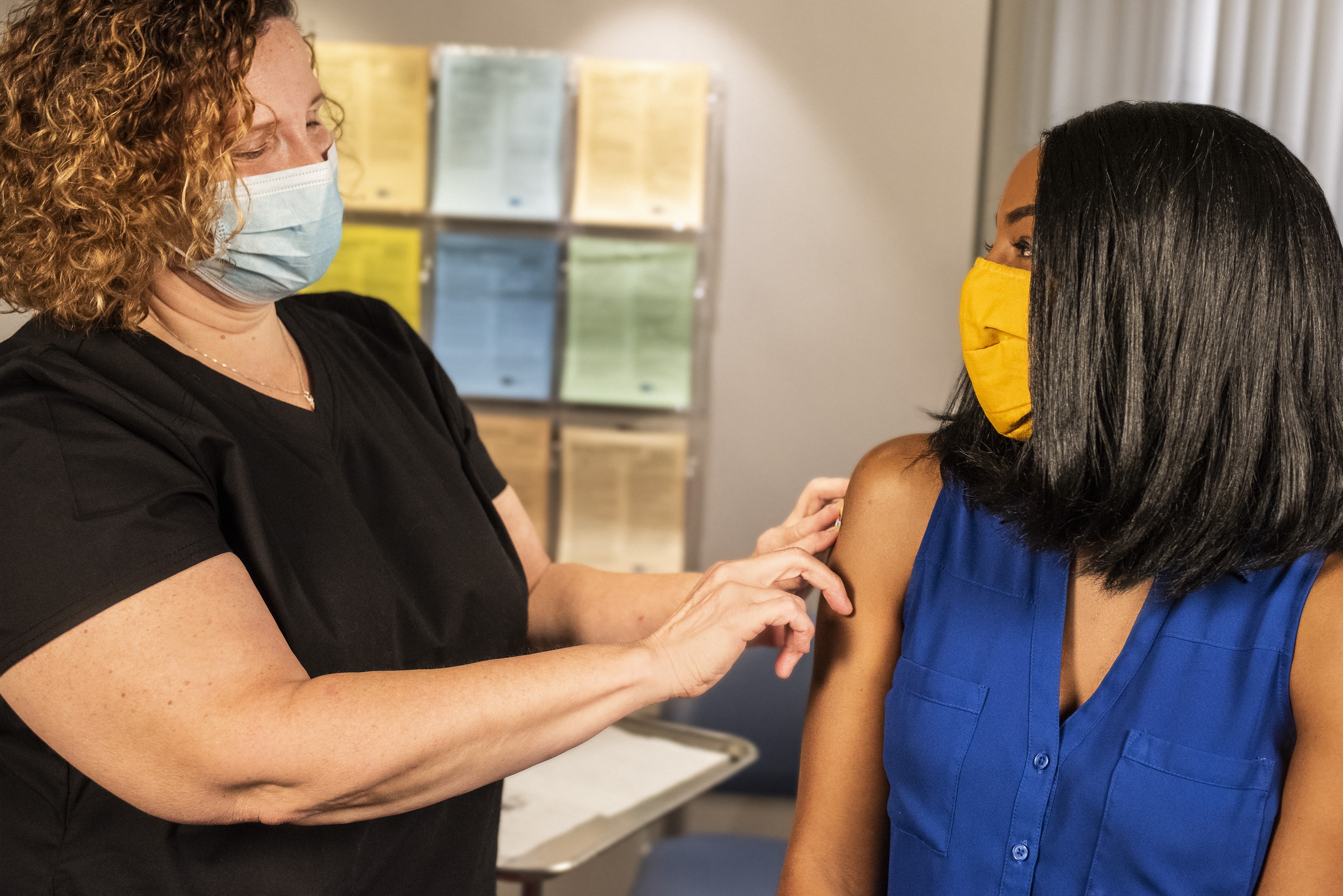COVID vaccine and fertility
You may have seen in the news that the UK has started rolling out two approved vaccines against COVID-19. They are known as the Pfizer-BioNTech and Oxford-AstraZeneca vaccines. The UK government plans to vaccinate 15 million people in “high-priority” groups, by mid-February, 2021. The current list of priority groups does not include those who are pregnant or breastfeeding (although they may be included due to health reasons or if they work in health or social care). So, you may be wondering if you should avoid the vaccines if you are pregnant, breastfeeding, or even trying to get pregnant.
*We’ll keep the information on this page updated as the situation unfolds and more information becomes available.
This article was last updated on: 22nd February, 2021.

What is the official advice?
The good news is that there’s no need to avoid the vaccine if you are TTC. Experts believe the vaccine will not have any effect on future fertility. In fact, some volunteers who received the vaccine during earlier clinical trials have since reported becoming pregnant. In fact, the European Society of Human Reproduction and Embryology (ESHRE) encourages those who are eligible to receive the vaccine before beginning any kind of assisted reproduction to help you stay healthy during any future pregnancies. However, since vaccines work by inducing an immune response, ESHRE recommends both men and women wait “a few days” to start any kind of assisted reproduction after receiving the first dose of the vaccine, just so your body has enough time to recover from temporary side effects.
If you have been told that you are eligible for the vaccine and are planning to receive the vaccine while pregnant or breastfeeding, the Royal College of Obstetricians and Gynaecologists recommends that you receive it at your maternity unit, or inform your maternity unit once you are vaccinated, so you and your baby can be monitored by the UK Obstetric Surveillance System (UKOSS)/UK Teratology Information Service (UKTIS) vaccine registry.
Are the COVID-19 vaccines generally considered safe?
The trial studies have shown that the side-effects of the COVID-19 vaccines are similar to those of other vaccines, such as for flu, measles and polio. This means some people will experience symptoms such as tiredness, muscle pain, low fever and headache after having their COVID-19 vaccine.
The following websites contain more information:
Read our other articles about COVID-19:
The information and guidance in this article is based on what experts know about the COVID-19 virus and vaccines so far. More evidence is being collected over time and our guidance will be updated when this is available.
Gynii Me takes care to provide access to accurate and reliable information to help you wherever you are on your fertility journey. Please let us know if you think any content on this site is factually incorrect.
If you have any further questions, we’d love to hear from you. Please get in touch via our email: hello@gyniime.co.uk

Connect with us